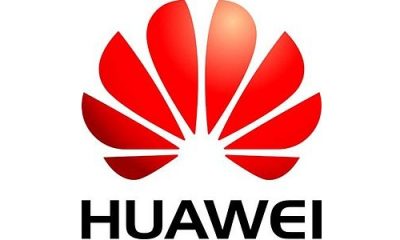Telecom
5G as a Catalyst for Economic Opportunities and Innovation in Sub-Saharan Africa
By Rami Osman, Director for Corporate Sales and Marketing, MediaTek Middle East and Africa.
Over the past two decades, mobile telecommunications has transformed the face of Sub-Saharan Africa, integrating hundreds of millions of people into the digital economy and creating a new industry worth billions of dollars a year. Mobile technology has, according to the GSM Association, reached 1.2 billion connections and over 650 million unique mobile users in Africa.

Thanks to mobile technology, Sub-Saharan Africa has leapfrogged legacy voice and data networks, positioning itself at the forefront of innovations such as mobile money. Now, with 5G, the fifth generation of GSM cellular technology bursting into the mainstream, Africa has another opportunity to take a technological leap.
5G offers a significant jump in speed and performance over 4G/LTE with real-world speeds above 200Mbps and dramatic improvements in latency. Not only does 5G promise a far richer and faster consumer mobile broadband experience, but it will also be the bedrock on top of which organisations will build the digital economy of the future.
The speed at which operators around the world are building 5G networks is unprecedented. GSMA Intelligence forecasts that consumer 5G connections will raise increase from one billion at the end of 2022 to two billion by the end of 2025. This will make 5G as the fastest generational rollout of GSM tech we have seen to date.
Africa cannot afford to get left behind. According to the GSMA, 5G has the potential to contribute $26 billion to Africa’s economy by 2030 when 5G will account for 20% of mobile connections in Africa. The Association reports that 5G-related activities have begun to pick up across Africa, including spectrum auctions, pilots and commercial trials.
5G set to drive the next wave of innovation
Should policymakers, regulators and network operators focus on accelerating 5G deployments across Africa, the economic dividends will be substantial. One of the immediate benefits may come from deploying 5G as a fixed-wireless and mobile broadband access technology to offer higher speed internet to the many parts of Africa where fibre networks don’t reach.
In a world of hybrid and remote work, this could foster new economic opportunities for people across the continent. It could help to catalyse innovation in cloud computing as organisations start to create innovative, localised services and applications to empower individuals, businesses, and communities in remote and underserved areas.
5G will also facilitate the digitalisation of sectors such as agriculture, healthcare, education and manufacturing, leading to increased productivity, job creation, and entrepreneurship opportunities. Higher speeds and lower latency of 5G networks will facilitate the adoption of next-generation digital technologies such as virtual/augmented reality, artificial intelligence and the Internet of Things.
Taken together, these technologies will improve efficiencies, enhance productivity, and provide better services across the public and private sectors alike. 5G will enable automated processes across sectors like smart cities, agriculture, transportation, and energy management. From virtual reality learning experiences and telemedicine to smart factories and intelligent grids, the possibilities are endless.
A commitment to bringing 5G everywhere in Africa
At MediaTek, we are committed to bringing 5G everywhere in support of the efforts from governments, telecoms companies, regulators and end-users. Our advanced portfolio of 5G technologies delivers fast and reliable 5G to fixed wireless access routers, mobile hotspots, PCs, smartphones, tablets, vehicles and beyond.
MediaTek is focusing on making 5G available and accessible to everyone with our Dimensity family of chipsets. The Dimensity system on a chip, or SOC, is the hardware ‘brains’ of a modern 5G smartphone, offering the best of 5G speeds, brilliant gaming technologies, and professional grade imaging and videography.
It’s our goal to enable 5G for as many people and markets in Africa as possible. We plan to work closely with customers, networks and technology suppliers to help everyone take advantage of the power of 5G. Now is the time for Africa to harness the economic, personal and societal benefits of this powerful connectivity standard.
Telecom
Navigating the Path to Sustainable Telecom Services for Subscribers
By Dinesh Balshingh
As Nigeria continues its journey towards becoming a digitally driven economy, reliable telecommunications services remain the backbone of our collective progress. At Airtel Nigeria, we are committed to delivering world-class connectivity to millions of Nigerians, enabling economic growth, empowering businesses, and enhancing lives.

We understand that the future technology needs of the country, as ushered in by the highspeed 5G era of AI, Cloud computing, Data science applications, and Blockchain, should be directing significant investments towards building a resilient network. However, the industry faces significant challenges that require a closer look as we strive to maintain the high standards that our customers deserve.
Increased Intensity of Investments: The increasing demand for digital services across sectors such as education, media, banking, transportation, and manufacturing has come with an increased demand on telecom capacity.
Upgrading networks to deliver more data capacity is key to a sustainable future. To help ensure that the Nigerian economy keeps pace with the global improvements in technology and communications while supporting the aspirations of consumers, we also take on the responsibility of executing new technology and system upgrades as well as improved security. Data security is now more than ever a priority as more and more people upload personal information online.
All of these require significant investments which are sourced from the international markets at costs denominated in US Dollars. In the past three to four years, for instance, the dollar has gone from exchanging for about N500 to over N1,600.
This more than three-fold increase in foreign exchange conversion exponentially increases the cost of investments required to run a good quality network.
In addition to this unprecedented hike in capital expenditure, the operating costs have surged dramatically, with operating expenses rising by over 300% in the last 18 to 24 months alone.
While several critical areas of the business are impacted, I would, for expediency, focus on three of those areas: Rising Energy Cost, Infrastructure Challenges, and a Commitment to Quality Service.
Rising Energy Costs: Powering telecommunication infrastructure requires significant energy resources. Energy is the single largest operating cost for running a network. With increasing global energy prices and while efforts are ongoing to fully stabilize power supply in Nigeria, Airtel Nigeria and other operators in the sector are incurring soaring costs to keep networks running seamlessly.
Infrastructure Challenges: The industry continues to grapple with rampant fiber cuts and vandalization of critical infrastructure. These incidents not only disrupt services but also demand substantial investments to repair and maintain facilities.
Commitment to Quality Service: Despite these challenges, Airtel Nigeria has remained steadfast in ensuring quality of service. From expanding 4G and 5G networks to meeting growing demand in urban and rural areas, we have painstakingly absorbed the rising costs of these obligations to avoid compromising the customer experience and ensuring Nigerians, regardless of their location, have access to mobile communication and remain connected to the digital economy.
Telecommunications operators have worked tirelessly to sustain services despite keeping tariffs unchanged for the last 10 years. While tariffs have remained static for over a decade, the economic realities necessitate a review to ensure the sustainability of services hence our recent application to the government for tariff adjustment which if approved will be a step towards addressing this imbalance.
It is not a decision taken lightly but one borne out of the need to guarantee continued investment in network expansion, technology upgrades, and improved service delivery.
The telecommunications sector is pivotal to Nigeria’s ambition to become a digital economy leader in Africa. Meeting this aspiration requires operators to make substantial investments in network infrastructure, spectrum acquisition, and innovative solutions. These investments come at a cost, one that must be shared proportionally to ensure long-term viability.
At Airtel Nigeria, we remain resolute in our commitment to:
Delivering Quality Services: As the government continues to monitor operators’ compliance with service quality standards. Airtel is dedicated to surpassing these benchmarks, ensuring customers experience uninterrupted and superior connectivity.
Driving Economic Growth: By expanding our network and enhancing digital inclusivity, we are enabling the government’s economy turnaround agenda and fostering opportunities for all Nigerians.
Being a Reliable Partner: Despite industry challenges, we are steadfast in our role as a trusted partner in Nigeria’s digital transformation journey.
While significant tariff adjustments have become warranted for the sustainability of the industry, Airtel has always been sensitive to affordability and understand that the price adjustments must be done gradually to support our customers’ financial positions.
“We believe that an approval of revised tariffs will empower operators to invest in capacity, expand coverage to underserved areas, aim for advanced security on the networks, and improve service quality and network availability while ensuring that Nigeria remains competitive in the global digital landscape.
As we navigate the present imperatives together, we urge all stakeholders, including customers, regulators, and partners to recognize the importance of building a resilient telecommunications ecosystem. Airtel Nigeria remains committed to delivering unmatched value while supporting the nation’s economic development.
Dinesh Balsingh is the Managing Director/CEO of Airtel Nigeria.
Telecom
Data breaches: Commission warns banks, hospitals, others against infractions
Nigeria Data Protection Commission (NDPC) has issued a strong warning to institutions and organizations found mishandling citizens’ data, promising to impose maximum penalties on violators as part of an effort to strengthen enforcement in 2025.

National Commissioner and Chief Executive Officer, Dr. Vincent Olatunji, emphasized the importance of safeguarding data integrity and assured that the Commission will enhance its enforcement mechanisms to hold accountable sectors such as banking, healthcare, education, insurance, telecommunications, and government agencies.
In a statement released by the Commission’s Media Department, Dr. Olatunji urged data controllers and processors to prioritize data security, warning that the NDPC’s tolerance for breaches will be minimal.
He stressed that while the Commission had previously refrained from issuing fines, there would be significant penalties moving forward for those failing to comply with data protection regulations.
The NDPC’s increased focus on enforcement aims to protect the data rights of Nigerians as guaranteed by the Nigeria Data Protection Act (NDPA).
Dr. Olatunji highlighted the Commission’s ongoing engagements with public and private stakeholders to foster awareness and compliance, underscoring that these efforts have led to the signing of Memorandums of Understanding (MOUs) with key organizations such as the National Insurance Commission (NAICOM), the National Lottery Regulatory Commission (NLRC), the Data Privacy Office of Canada, and the Dubai International Financial Centre Authority (DIFC).
Telecom
Subscriber Group Rejects Telcos Push for Tariff Hike
National Association of Telecoms Subscribers (NATCOMS), a telecoms subscriber body, has warned Nigerian Communications Commission (NCC) not accede to demands by telecommunications companies in the country to hike tariff, insisting that such increase would unleash further hardships on its members.

Chief Deolu Ogunbanjo, president, NATCOMS said in statement that the group in a recent emergency meeting over the planned tariff hike of telecommunication services, unanimously voted against any tariff hike.
Ogunbanjo, said telecoms services are taxable services under the Value Added Tax Act.
The Act was amended in 2019 by the Finance Act of that year to raise the tax rate from five per cent to 7.5per cent which was 50per cent increment and the increment has been borne by the consumers of rateable telecom services.
“That increment brought about untold hardship to our members many of who have been forced to cut back on their telecom requirements.
“As if that was not bad enough, the Federal Government got the National Assembly to enact the Finance Act of 2020. Section 37 of the Act amended Section 21 of the Customs, Excise Tariff etc. (Consolidation) Act by imposing an excise duty charge on Telecommunication Services. The then president, President Muhammadu Buhari by an order prescribed five per cent as the rate of the excise duty charge, chargeable for telecommunication services. The additional tax burden was greeted with public outcry and this association, at the prompting of our members, challenged the excise duty charge in court, in the case of Registered Trustees of National Association of Telecommunications Subscribers (NATCOMS) V MTN Nigeria Communications Limited and Others – Suit No: FHC/L/ CS / 189) 2023 on the ground of double taxation which is illegal and unconstitutional.
NCC and other Federal Bodies are parties to the suit and the Federal Government as represented by the Federal Inland Revenue Service (FIRS) entered an appearance and filed processes opposing the suit. The case is now pending before Hon. Justice Aluko, sitting at the Lagos Division of the Federal High Court, and the case is slated to come up in the court on the 13th March, 2025,” Ogunbanjo said.

 E-Business1 day ago
E-Business1 day agoA beginner’s guide to Temu: Your ultimate shopping companion

 E-Financial1 day ago
E-Financial1 day agoCBN did not Force 1000 Workers to Resign- Cardoso

 E-Financial1 day ago
E-Financial1 day agoBankit MFB Unveils Web Banking Platform

 Telecom1 day ago
Telecom1 day agoNavigating the Path to Sustainable Telecom Services for Subscribers

 E-Financial1 day ago
E-Financial1 day agoWorld Bank Okays $1.5Bn Loan to Nigeria in Support of Tax Bills

 Telecom1 day ago
Telecom1 day agoData breaches: Commission warns banks, hospitals, others against infractions

 Telecom3 days ago
Telecom3 days agoTelcos Threaten to Shut Down Services in Some Parts of Nigeria over Tariff
- Telecom2 days ago
Subscriber Group Rejects Telcos Push for Tariff Hike

























